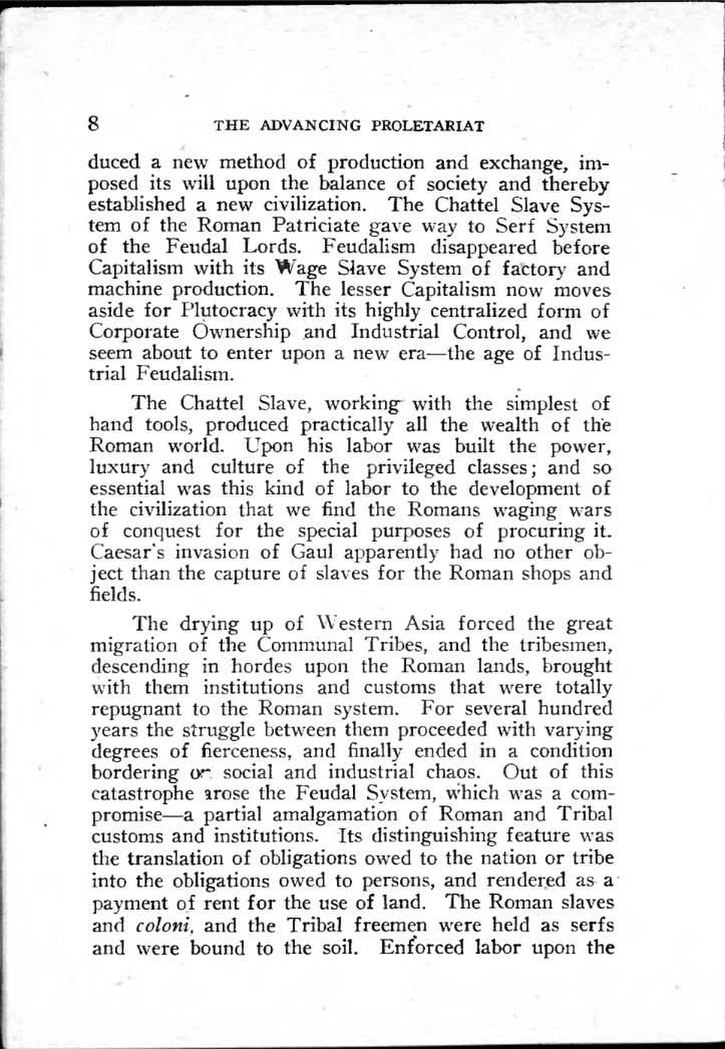duced a new method of production and exchange, imposed its will upon the balance of society and thereby established a new civilization. The Chattel Slave System of the Roman Patriciate gave way to Serf System of the Feudal Lords. Feudalism disappeared before Capitalism with its Wage Slave System of factory and machine production. The lesser Capitalism now moves aside for Plutocracy with its highly centralized form of Corporate Ownership and Industrial Control, and we seem about to enter upon a new era—the age of Industrial Feudalism.
The Chattel Slave, working with the simplest of hand tools, produced practically all the wealth of the Roman world. Upon his labor was built the power, luxury and culture of the privileged classes; and so essential was this kind of labor to the development of the civilization that we find the Romans waging wars of conquest for the special purposes of procuring it. Caesar's invasion of Gaul apparently had no other object than the capture of slaves for the Roman shops and fields.
The drying up of Western Asia forced the great migration of the Communal Tribes, and the tribesmen, descending in hordes upon the Roman lands, brought with them institutions and customs that were totally repugnant to the Roman system. For several hundred years the struggle between them proceeded with varying degrees of fierceness, and finally ended in a condition bordering on social and industrial chaos. Out of this catastrophe arose the Feudal System, which was a compromise—a partial amalgamation of Roman and Tribal customs and institutions. Its distinguishing feature was the translation of obligations owed to the nation or tribe into the obligations owed to persons, and rendered as a payment of rent for the use of land. The Roman slaves and coloni, and the Tribal freemen were held as serfs and were bound to the soil. Enforced labor upon the
